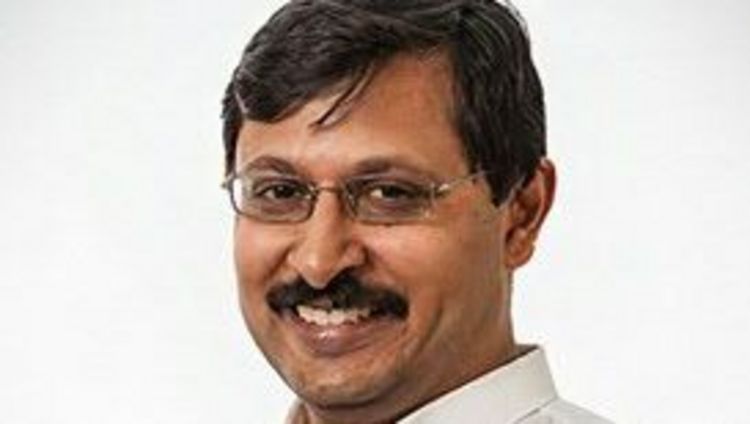Webinar (29.10.2020) Fuel Cells & Hydrogen Research and Education driving the Energy Transition in the North.
(67 participants and presenters at the highest point; with approx. 30 actual students and alumni from PPRE)
Minutes of the Webinar:
Introduction Patricia Poppendick (University of Groningen) and kick-off by Prof. Aravind.
Prof. Robert Steinberger: hydrogen projects in the NW of Germany.
Interest in renewable energy supply as you need to solve the storage problem. Hydrogen provides good interseason storage solutions for wind and solar (and biomass).
Building up of experience in energy system consultancy for storage solutions via a university spin-off Planet Planungsgruppe and EU research projects focusing on public transportation. These projects provide proof for H2 being an interesting technology for storage and distribution.
Balancing the nets was another big challenge for the renewable energy projects and H2 seems to be an essential fuel to help solve the problem even though the technology was not yet economically viable. Besides for the mobility projects infrastructure and external costs were playing an important role in the success of H2 projects vs diesel vehicles (more efficient but also more polluting). The research shows that the costs for the H2 now are even. But of course the costs of green H2 are higher.
H2 is now experiences its 3rd hype cycle in terms of public attention and investments. We see now major infrastructure developments.
With the current RE technology we can now produce the entire range of fuels for a fully functioning transportation system. The fueling station network in Germany and Benelux is growing. France is seriously considering to join this movement.
The technology is now moving towards hybridization of different RE solution in one system, for example a vehicle: electromotor, batteries and fuel cells.
Now working on hydrogen trains and investments in railways near Hamburg. Other parts of the world are spinning off the same technology developed in Germany.
Large electrolysis are being planned to build in NW Germany with the capacity of 100 Megawatts. It would be wise to connect them with the Dutch side and plans via the cables that are passing through the Dollard delta.
Dr Hans Holtorf and team of students – Renewable Energy Studies at University of Oldenburg
The development of education in RE dates back to 1980s and has been steadily growing and developing into two dedicated master (EMRE (allows students to go to Groningen to HG)) and PPRE (since 1987) thought in English today with almost 800 students from 80 different countries. The selection and competition for new students is quite high as from 800 applicants 35 students are admitted each year.
A group of master students provide an overview of their studies, motivation to come to Oldenburg, visit Groningen for specialization and connect their background (country and continent) to energy transition.Students from OL can use the Erasmus+ programme if they want to study a semester in Groningen. Auslandsambt or our Faculty exchange office at FSE can be contacted for this.
Prof. Ad van Wijk: Hydrogen initiatives in the Netherlands
Looking into the future energy systems where H2 is going to play an important role as energy carrier. This is important since the dramatic drop in costs of RE, especially the wind and sun sources. Europe, especially the Northern parts are good for wind energy production and North Africa, MENA and South Europe are good for sun. These regions need to be connected in the future to exchange energy streams.
This can be done through (mainly alkaline) electrolysis in cost-efficient way for large scale production of H2 for storage and transportation. As currently the German and Dutch offshore wind developments are going to produce too much electricity for the rest of the national grids to process.
However there is a systemic problem in the Netherlands when it comes to the capacity of the electricity grid. The gas pipelines have 15 times more capacity to deliver energy: 20 vs 350 GW. Therefore the country is working on a new hydrogen backbone running from the North (Eemshaven) to the important harbors (such as Hydrogen Port of Rotterdam (2030)) and industry in the South and West of the country. This project should be ready in 2027 This plan fits well into the European industrial plans to develop a European hydrogen backbone that will connect the demand hotspots as well as connect the continent with North Africa and its solar energy capacities.
Another trend is the storage option of H2 in old gas fields and sault caverns. This could be an alternative solution for large scale storage vs electricity storage in large scale batteries. However this requires looking at the storage solutions from a systemic point of view. First cavern in the Netherlands will be in Groningen, and should be ready in 2023.
CO2 capture is currently a challenge, as we want to totally eliminate/utilize the CO2. Nevertheless, in Groningen at the Delfzijl Chemical park companies are building an industrial H2 pipeline.
Another development on de the demand side are the hydrogen driven vehicles, tractors for the agricultural sector, and boilers (in combination with heat pumps) for individual households.
Import of liquid H2 is an important subject for both the Netherlands as well as Germany.
Main challenge is the scaling up of the hydrogen infrastructure, and less so the technology. However production capacity and fuel cells still need further technological innovation. This can/should be stimulated by the national and EU governmental subsidies and investments.
Prof. Aravind: Research and teaching at the University of Groningen on fuel cell and hydrogen
Groningen is the first hydrogen valley acknowledged by EU, there is a hydro hub of MW scale test staions in the making on campus. RUG is a unique location to study and teach H2 related topics as it combines science, technology and socio-economic perspectives on the matter.
One of the important lines of research is electrocatalysis with students and researchers in the field of chemical engineering by Prof. Paolo Pescarmona and his group of process engineers and chemists.
Another important track for both research and education is the hydrogen economy perspective at the Faculty of Economics and Business by Dr. Everim Ursavas.
The group of Dr Francesco Maresca from Computational Mechanical and Materials Engineering looks at Hydrogen embrittlement in steels which is important in devising hydrogen storage and handling systems.
Own research by Aravind looks into efficiency, modeling and conversion studies, reversible fuel cells, fuel oxidation, electrolysis, combustion technology, energy system thermodynamics with development of new educational tracks in mechanical engineering. Another important track for teaching is an European online program for technicians called KnowHy. Another program called TeachHy is geared at the university level master on Hydrogen and Fuel Cells at the European level.
A new lab is being set up in Groningen with a focus on fuel cells and electrochemistry.
Brainstorming about cooperation opportunities:
1. Student exchange (Erasmus+) for master thesis projects as has been suggested by Jodien Houwers (RUG)
2. Vehicles development, including shipping industry and development of new boats/ships. Drone development.
3. Large scale electrolysis projects in Eemshaven and Emden. We could look at the opportunities to connect these harbor initiatives. Maybe use Interreg for this cooperation or the EU Green Deal?
Potentional follow-up activities:
Building an energy knowledge corridor between northwest Germany and the north Netherlands, especially since large hydrogen projects are probably coming up/thought of at Emden and at Groningen. The well-known renewable energy education programs at Oldenburg (800 applications for 30 seats ...) and the new DLR institute at Oldenburg on integrated energy systems etc. offer a good platform to start with.
For a recent interview with Aravind please see the link: www.rug.nl/news/2020/08/building-energy-plants-that-remove-greenhouse-gases.




